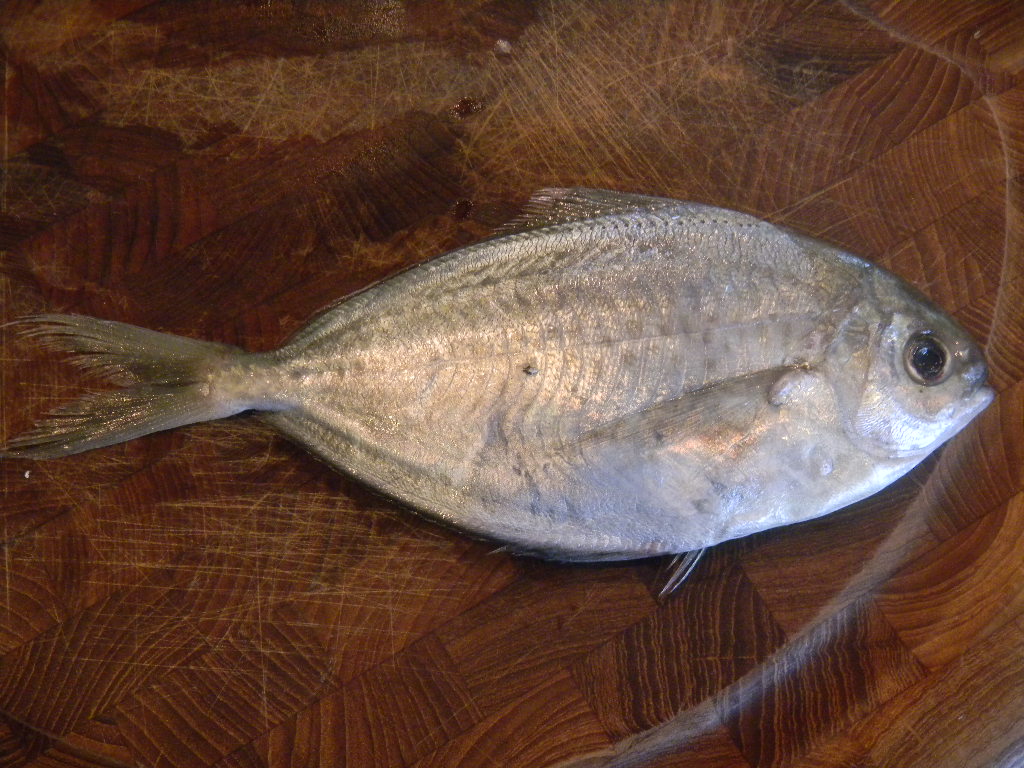Butterfish
Name(s): Butterfish, dollarfish, shiner, skipjack
Classification (Taxonomy): Peprilus triacanthus
Size Range (estimate of avg. length + state/federal restrictions):
Avg.: 6-9 inches
Restrictions:
Weight Range (estimate of avg. weight + state/federal restrictions):
Prominent Characteristics [i.e. unusual color, fins, etc.]: Silver belly, darker lead/blue color on top, dark spots. Small dorsal and side fins.
Catch Methods [i.e. trawling]: Mostly caught as by-catch in squid trawls
Sustainability (Worth of catch/rarity):
Tonnage (annual lbs. of landed fish):
Range: Atlantic Coast of United States, South Carolina to Nova Scotia
Seasonal Status:
Cooking Methods:
To gut: cut off the head slightly at an angle right behind the gill. Stick a knife into the stomach cavity and pull down; scrape out. Rinse under running water.
To cook: Pan-fry whole in butter; season with salt and pepper in pan. Cook until color changes in the thickest part of the meat, where the head was cut off.
To eat: No scales. Pull back skin if desired. Simply fork off meat from backbone watching for long thin bones around stomach. Mild fishy flavor.
Additional Info:
American butterfish are small. They reach only 6-9 inches in their lifetime. Consequently, they are sometimes used as bait-fish, but they are capable for being used for much more. This little fish should not be overlooked by shoppers. What people don't expect to hear is that butterfish can be used in many foods, like soup and stew, and can also be fried whole! Although butterfish are mostly caught as by-catch in squid trawls, it is a smart fish to buy. These fish are very low in fat and have extremely low mercury levels. Some say that eating the fish is a hassle because of the abundance of small bones, but most agree that the fish has a unique taste that translates directly to its name. They taste like butter.
Resources:
journal.nafo.int/J12/lange.pdf
www.nefsc.noaa.gov/publications/tm/tm145/tm145.pdf

